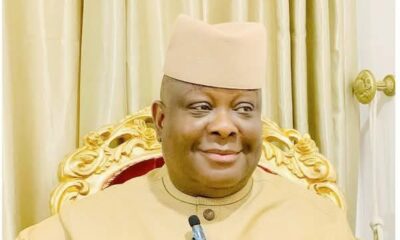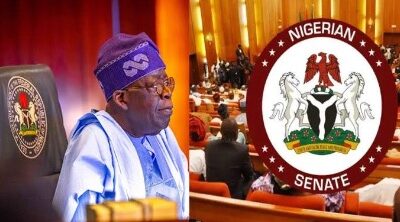Politics
Local Government Autonomy: Will Imposition of Candidates on Political Parties by State Governors and Party Leaders Promote Transparency and Good Governance?
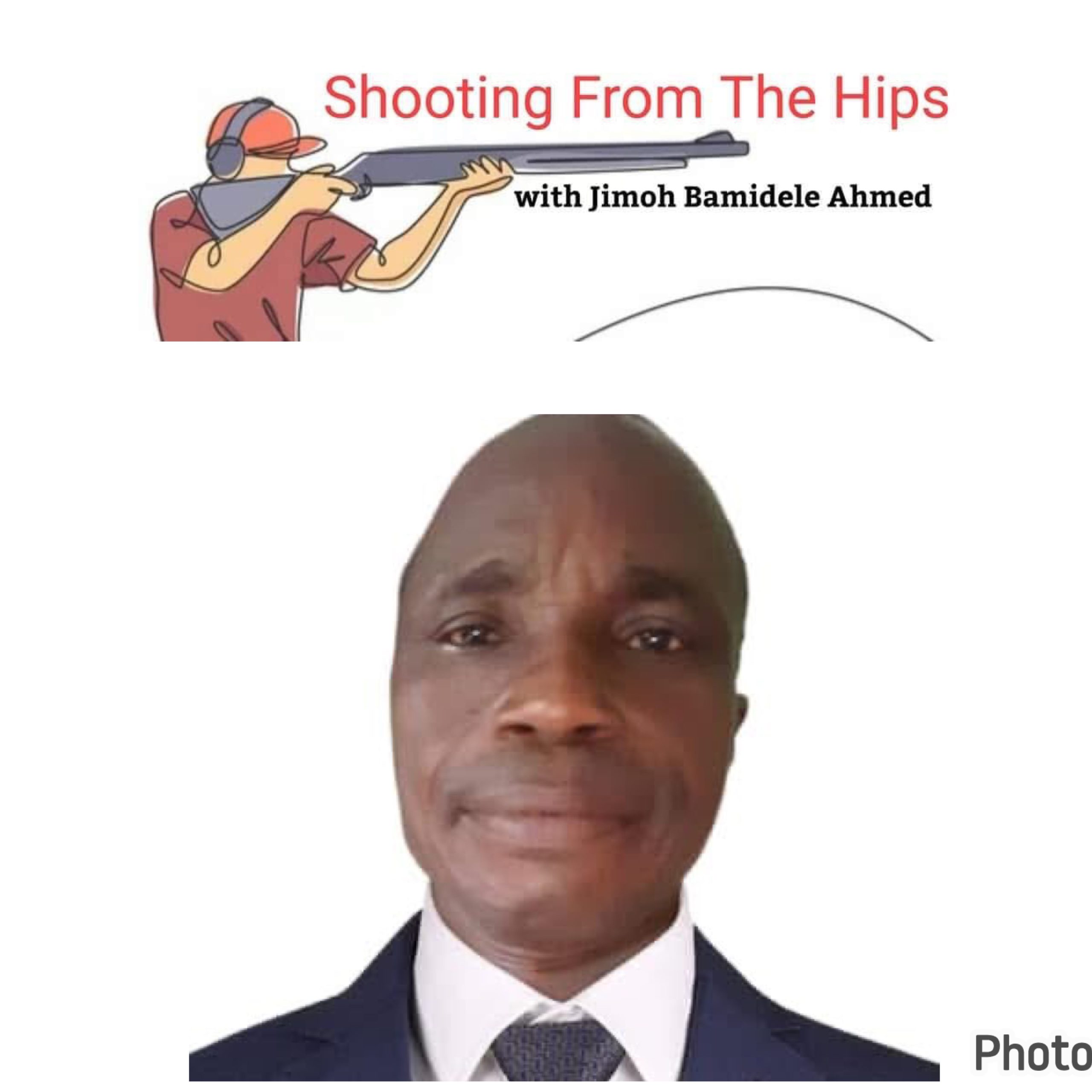
Local Government Autonomy: Will Imposition of Candidates on Political Parties by State Governors and Party Leaders Promote Transparency and Good Governance?
By Jimoh Ahmed
Local government autonomy has been a perennial subject of debate in Nigeria’s democratic development. It touches on the very foundation of federalism, decentralization, and grassroots governance. The local government system, as the closest tier of government to the people, plays a vital role in delivering essential services, fostering community development, and ensuring citizen participation in governance. However, its effectiveness has been undermined by state-level interference, most notably through the imposition of candidates by state governors and party leaders.
This practice raises questions about the viability of local government autonomy and its ability to promote transparency and good governance. This essay explores the implications of candidate imposition, the challenges it poses to transparency, and its impact on governance at the grassroots level. It argues that true local government autonomy is crucial for achieving sustainable development and strengthening Nigeria’s democracy.
Understanding Local Government Autonomy
Local government autonomy refers to the degree of independence enjoyed by local councils in managing their affairs, including administrative, financial, and political matters. Autonomy enables local governments to:
1. Decide on policies that reflect the unique needs of their communities.
2. Generate and manage revenue without undue interference from higher tiers of government.
3. Elect their leaders freely through democratic processes, ensuring accountability to the people rather than to external authorities.
However, the reality in Nigeria is starkly different. Local governments are often treated as appendages of state governments. Despite constitutional provisions for their autonomy, state governments control local councils through joint accounts, legislative overreach, and the imposition of candidates.
The Culture of Candidate Imposition
Imposing candidates for local government elections is a widespread practice in Nigeria. This phenomenon occurs when state governors and party leaders unilaterally decide who should contest for local government positions, sidelining party primaries and the preferences of the electorate. This practice undermines democracy and raises critical concerns about governance at the grassroots level.
1. Erosion of Democratic Processes
Candidate imposition violates the principles of democracy. Local government elections, meant to reflect the will of the people, become a mere formality when candidates are handpicked by political elites. Party members and voters are left disenfranchised, fostering apathy and mistrust in the system.
2. Promotion of Cronyism
Imposed candidates are often selected not for their competence or vision but for their loyalty to the political elite. This practice entrenches a culture of cronyism, where public offices are used to reward loyalists and consolidate power rather than serve the people.
3. Lack of Accountability
Imposed candidates are more likely to be accountable to those who installed them than to the citizens they are meant to serve. This undermines the principle of representation, as decisions at the local level are driven by the interests of a few rather than the needs of the many.
Implications for Transparency
Transparency is a cornerstone of good governance, involving openness in decision-making, accountability, and the prevention of corruption. The imposition of candidates has several negative implications for transparency:
1. Weakening Institutional Checks
Imposed candidates are less likely to challenge the status quo or demand accountability from higher authorities. This weakens institutional checks and balances, allowing corruption and mismanagement to thrive.
2. Manipulation of Financial Resources
State governments often exploit their control over local government finances through the joint account system. Imposed local government chairpersons may collude with state authorities to divert funds meant for community development, leading to poor service delivery and infrastructure decay.
3. Reduced Citizen Participation
When citizens perceive that elections are rigged or predetermined, they are less likely to participate in governance processes. This lack of engagement creates an environment where decisions are made without public scrutiny, reducing transparency.
The Impact on Good Governance
Good governance encompasses effective service delivery, equitable resource allocation, respect for the rule of law, and the promotion of human rights. Candidate imposition undermines these principles, as highlighted below:
1. Poor Service Delivery
Local governments are tasked with providing basic amenities, including water, roads, healthcare, and education. Imposed leaders, often lacking competence or commitment, struggle to address these needs effectively, resulting in widespread dissatisfaction.
2. Marginalization of Communities
Candidate imposition can alienate communities, particularly when imposed leaders do not reflect their aspirations. This marginalization breeds discontent and undermines social cohesion, making development efforts more challenging.
3. Stagnation of Grassroots Development
Effective local governance requires visionary leadership and a deep understanding of community needs. Imposed candidates, chosen for political expediency rather than merit, are ill-equipped to drive sustainable development.
4. Erosion of Trust in Government
Transparency and good governance rely on public trust. When citizens perceive that local government leaders are imposed rather than elected, trust in the democratic process diminishes. This erosion of trust hinders cooperation between citizens and government, further hampering development.
The Way Forward
Addressing the challenges posed by candidate imposition and promoting local government autonomy requires a multifaceted approach:
1. Constitutional Reforms
The 1999 Constitution should be amended to strengthen the independence of local governments. This includes abolishing the joint account system and ensuring that local councils receive their funds directly from the federal government.
Although, the council areas now receive their allocations directly from the federation account, at least we were made to believe for now, it must be emphasised here that this should not be ordinary cosmetic surgery but it must be ensured that it works.
2. Internal Party Democracy
Political parties must prioritize internal democracy, conducting free and fair primaries to select candidates. This will ensure that party members and the electorate have a say in choosing their leaders.
3. Strengthening Electoral Institutions
The State Independent Electoral Commissions (SIECs), responsible for conducting local government elections, should be restructured to ensure impartiality and credibility. Alternatively, the Independent National Electoral Commission (INEC) could take over this responsibility.
4. Civil Society Advocacy
Civil society organizations have a critical role in advocating for local government autonomy and monitoring the conduct of elections. They can also educate citizens about their rights and the importance of participating in governance processes.
5. Citizen Engagement
Encouraging citizen participation in local government affairs is crucial. Community forums, town hall meetings, and social media platforms can be used to foster dialogue between local leaders and the people they serve.
6. Promoting Merit-Based Leadership
Political parties should prioritize merit and competence when selecting candidates. This will help ensure that leaders are chosen based on their ability to deliver results rather than their loyalty to political godfathers.
Case Studies: Success Stories and Lessons Learned
To illustrate the benefits of local government autonomy and the dangers of candidate imposition, we can draw lessons from various examples:
1. Lagos State’s Local Governments
While not entirely free from state interference, Lagos State has demonstrated the potential of empowered local councils to drive development. Local governments in Lagos have successfully implemented projects in waste management, healthcare, and infrastructure, showcasing the benefits of effective leadership.
2. Ekiti State’s Grassroots Engagement
In Ekiti State, efforts to involve communities in budgeting and project implementation have improved transparency and service delivery. This approach highlights the importance of citizen engagement in fostering good governance.
3. Failures of Imposition in Abia State
Conversely, in states like Abia, where local government leadership has been plagued by imposition and corruption, the consequences are evident in poor service delivery and widespread discontent. This serves as a cautionary tale for the dangers of undermining local government autonomy.
In conclusion therefore, local government autonomy is a vital component of Nigeria’s democratic development and a prerequisite for transparency and good governance. However, the imposition of candidates by state governors and party leaders undermines these objectives, leading to poor leadership, lack of accountability, and stunted development at the grassroots level.
For Nigeria to realize the full potential of its local government system, there must be a concerted effort to address these challenges. This requires constitutional reforms, a commitment to internal party democracy, stronger electoral institutions, and active citizen participation. By empowering local governments to operate independently and ensuring that leaders are chosen through transparent and democratic processes, Nigeria can lay the foundation for a more inclusive and prosperous future.
Politics
IMO WEST SENATOR IZUNASO WARNS AGAINST RISING TREND OF ILL-PREPARED LEADERS IN NIGERIA.
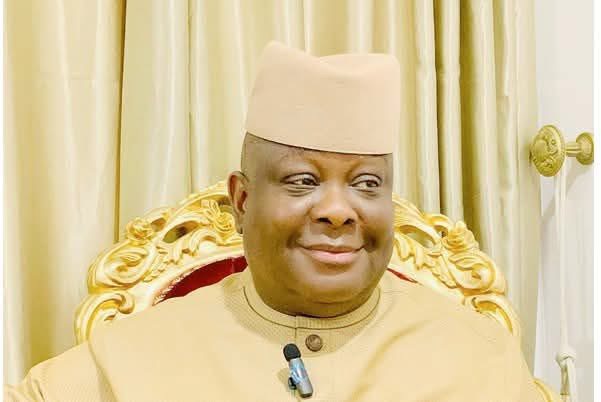
By Prince Uwalaka Chimaroke
17- DEC- 2025
The Senator representing Imo West Senatorial District and Chairman of the Senate Committee on Capital Markets, Senator Osita Izunaso, has expressed deep concern over what he described as the increasing occupation of political offices by individuals lacking the training, discipline, and values required for effective leadership.
Speaking in Abuja on Wednesday at the public presentation of Leadership 365: Daily Reflection for Effective Leadership, authored by Dr. Linus Okorie, President of the GOTNI Leadership Centre, the lawmaker noted that leadership in Nigeria is often misunderstood as merely holding public office rather than demonstrating character, competence, and vision.
Senator Izunaso stressed that authority does not automatically confer leadership, lamenting the absence of intentional leadership development structures in the country. According to him, many political actors assume leadership positions without adequate preparation, resulting in poor conduct, weak decision-making, and a disconnect from the people they serve.
He explained that true leadership reflects in attitude, speech, and behaviour, noting that leaders are constantly under public scrutiny and must therefore conduct themselves with responsibility and restraint. He added that leadership is not exclusive to political office holders, pointing out that leaders often emerge naturally in everyday settings based on influence and character rather than titles.
The lawmaker commended Dr. Okorie for contributing to leadership discourse through his book, describing it as a thoughtful work that highlights leadership as a daily responsibility applicable to all spheres of life. He emphasized that leadership is often revealed through action and integrity, not position, and can be identified even among children through observation of behaviour and influence.
Addressing young Nigerians, Senator Izunaso cautioned against the growing obsession with quick wealth, urging them instead to embrace mentorship and positive role models whose lives reflect sound values. He advised that money should not be the primary measure for choosing role models, stressing the importance of character and long-term impact.
The senator further observed that while technology and artificial intelligence are shaping the modern world, they can never replace the power of the human spirit. He noted that when properly guided, human capacity can drive meaningful change capable of transforming institutions, economies, and nations.
In his remarks, Dr. Okorie underscored the importance of deliberate leadership grooming, stating that nations that have achieved sustainable development did so by investing consciously in leadership capital. He explained that the book was written to encourage consistent self-reflection and inspire individuals committed to making a positive difference in society.
Observers note that concerns about leadership quality have remained a recurring issue in Nigeria’s governance discourse, with critics often pointing to weak institutions, policy inconsistency, and a political culture that prioritizes patronage over competence as major challenges to national development.
Politics
Engineers Farouk Ahmed, Gbenga Komolafe resign, President Tinubu nominates successors to the Senate for approval
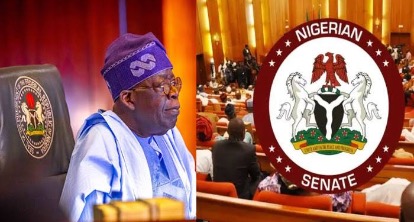
President Bola Ahmed Tinubu has asked the Senate to approve the nominations of two new chief executives for the Nigerian Midstream and Downstream Petroleum Regulatory Authority (NMDPRA) and the Nigerian Upstream Petroleum Regulatory Commission (NUPRC).
The requests followed the resignation of Engineer Farouk Ahmed of the NMDPRA and Gbenga Komolafe of the NUPRC. Both officials were appointed in 2021 by former President Buhari to lead the two regulatory agencies created by the Petroleum Industry Act (PIA).
To fill these positions, President Tinubu has written to the Senate, requesting expedited confirmation of Oritsemeyiwa Amanorisewo Eyesan as CEO of NUPRC and Engineer Saidu Aliyu Mohammed as CEO of NMDPRA.
The two nominees are seasoned professionals in the oil and gas industry.
Eyesan, a graduate of Economics from the University of Benin, spent nearly 33 years with the NNPC and its subsidiaries. She retired as Executive Vice President, Upstream (2023–2024), and previously served as Group General Manager, Corporate Planning and Strategy at NNPC from 2019 to 2023.
Engineer Saidu Aliyu Mohammed, born in 1957 in Gombe, graduated from Ahmadu Bello University in 1981 with a Bachelor’s in Chemical Engineering. He was announced today as an independent non-executive director at Seplat Energy.
His prior roles include Managing Director of Kaduna Refining and Petrochemical Company and Nigerian Gas Company, as well as Chair of the boards of West African Gas Pipeline Company, Nigeria LNG subsidiaries, and NNPC Retail.
He also served as Group Executive Director/Chief Operating Officer, Gas & Power Directorate, where he provided strategic leadership for major gas projects and policy frameworks, including the Gas Masterplan, Gas Network Code, and contributions to the Petroleum Industry Act (PIA).
Engineer Mohammed played a pivotal role in delivering key projects such as the Escravos–Lagos Pipeline Expansion, the Ajaokuta–Kaduna–Kano (AKK) Gas Pipeline, and Nigeria LNG Train.
EVENTS
PRESIDENT TINUBU CONGRATULATES SENATOR IFEANYI ARARUME ON HIS BIRTHDAY
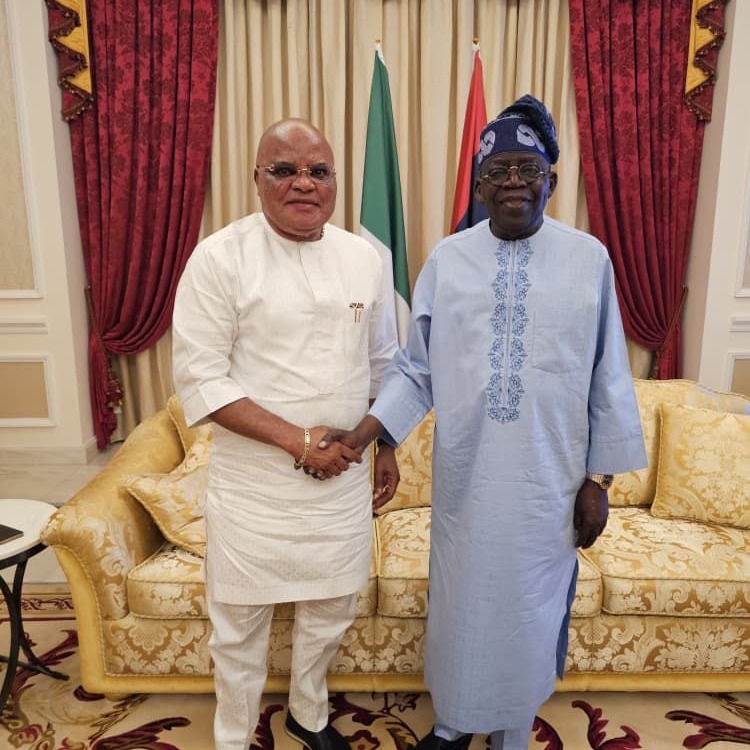
President Bola Tinubu felicitates Senator Ifeanyi Godwin Ararume, astute politician and accomplished businessman, on his birthday, December 16.
Senator Ararume’s odyssey in politics began in the late 1980s, when he served as the State Treasurer of the Liberal Convention in old Imo State. He later joined the National Finance Committee of the defunct National Republican Convention.
He represented Imo North in the 9th National Assembly. He was first elected in May 1999 and re-elected in April 2003. He also served on several committees and held other official roles.
President Tinubu commends the former senator for his years of service to the nation and contributions to its peace, unity, and progress.
The President describes Senator Ararume as a resolute and shrewd politician, highlighting his courageous and remarkable political journey through the years.
President Tinubu wishes Senator Ararume a happy 67th birthday and prays that God Almighty will grant him more years of good health and strength.
-
Business1 year ago
US court acquits Air Peace boss, slams Mayfield $4000 fine
-

 Trending1 year ago
Trending1 year agoNYA demands release of ‘abducted’ Imo chairman, preaches good governance
-

 Politics1 year ago
Politics1 year agoMexico’s new president causes concern just weeks before the US elections
-

 Politics1 year ago
Politics1 year agoPutin invites 20 world leaders
-

 Politics1 year ago
Politics1 year agoRussia bans imports of agro-products from Kazakhstan after refusal to join BRICS
-
Entertainment1 year ago
Bobrisky falls ill in police custody, rushed to hospital
-
Entertainment1 year ago
Bobrisky transferred from Immigration to FCID, spends night behind bars
-
Education1 year ago
GOVERNOR FUBARA APPOINTS COUNCIL MEMBERS FOR KEN SARO-WIWA POLYTECHNIC BORI

